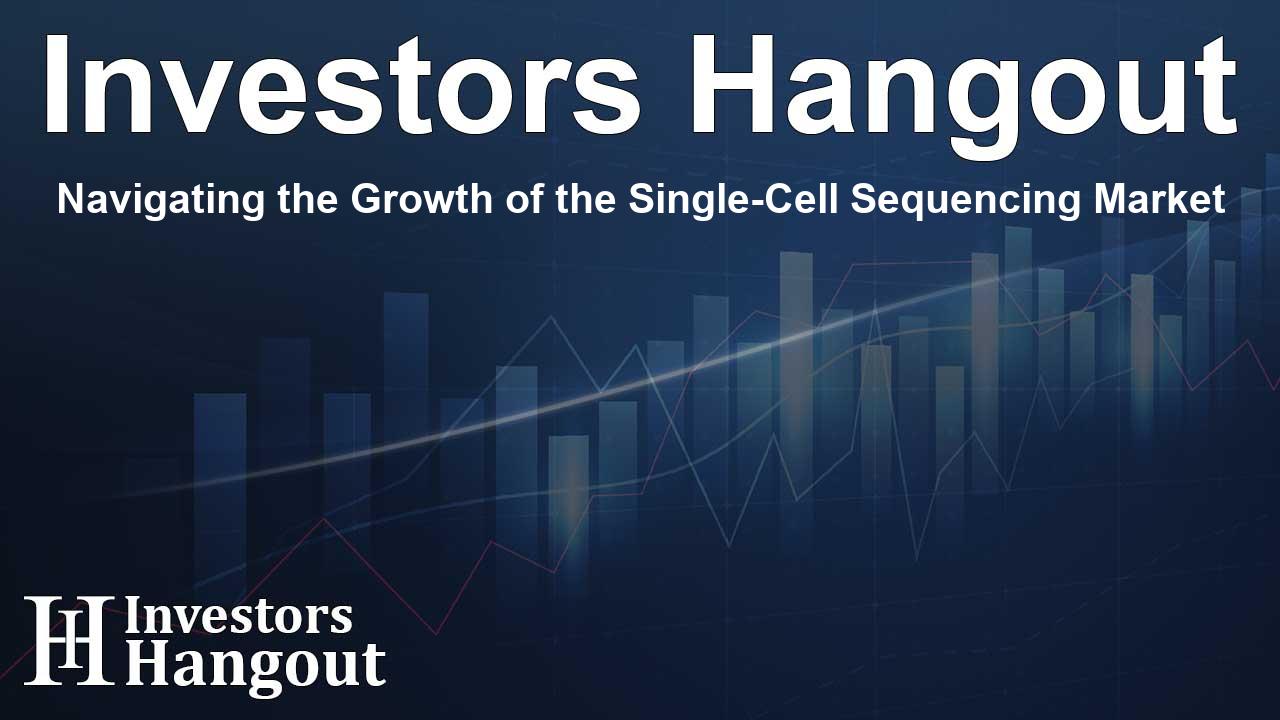Navigating the Growth of the Single-Cell Sequencing Market

Understanding the Expansion of the Single-Cell Sequencing Market
Single-cell sequencing is revolutionizing the way we approach genomics and personalized medicine. This technology allows researchers to analyze the genetic material of individual cells, providing insights that are crucial for breakthroughs in various medical fields.
Current Market Trends and Projections
According to recent estimates, the Single-Cell Sequencing Market was valued at approximately USD 2,109.8 million in recent years and is projected to soar to around USD 7,420.8 million in the upcoming years. This remarkable growth, characterized by a compound annual growth rate (CAGR) of 15%, reflects increasing demand for precision therapies in cancer treatment and immunology.
Applications in Precision Medicine
The rising prominence of single-cell technology is closely linked to its applications in precision medicine. Biopharmaceutical companies and research institutions are leveraging this technology to develop tailored therapies, particularly in oncology. The ability to decode the genetic makeup of tumors at a single-cell level allows researchers to understand tumor heterogeneity and immune responses better, paving the way for more effective treatments.
Market Dynamics and Key Players
The landscape of the single-cell sequencing market is competitive, with major players including Illumina Inc., Thermo Fisher Scientific Inc., and 10x Genomics Inc. These companies are at the forefront of innovation, providing state-of-the-art sequencing platforms that enhance drug discovery and development processes.
Regional Insights
North America currently leads the market, driven by substantial investments in research and development, robust healthcare infrastructure, and a high concentration of biotechnology companies. As the global demand for single-cell technologies increases, emerging markets in Asia-Pacific are anticipated to experience the fastest growth, fueled by government initiatives supporting genomics research.
Technological Advancements
Advancements in sequencing technology are contributing significantly to market growth. Next-generation sequencing (NGS) continues to dominate due to its accuracy and scalability. Newer technologies, such as single-molecule real-time sequencing, are also gaining traction for their ability to identify epigenetic modifications.
Future Growth Opportunities
The integration of artificial intelligence in data analytics regarding single-cell sequencing is anticipated to enhance the interpretation of complex data sets. As researchers continue to unravel the complexities of cellular behaviors, we can expect further advancements that will reshape the landscape of genetic research and therapeutic development.
Challenges and Considerations
While the opportunities are vast, the single-cell sequencing market is not without its challenges. The high costs of sequencing technologies and the need for specialized training to interpret the data can pose barriers for many institutions. These challenges highlight the need for collaboration between technology developers and academic researchers to ensure widespread access and usability.
Conclusion
The single-cell sequencing market is poised for exponential growth, driven by a surge in demand for precision medicine and innovative genomic technologies. As key players in the industry continue to push the boundaries of what's possible, the future looks promising for researchers and patients alike.
Frequently Asked Questions
What is single-cell sequencing?
Single-cell sequencing is a powerful technique that allows scientists to examine the genetic material from individual cells, providing detailed insights into cellular behaviors and abnormalities.
Why is the single-cell sequencing market growing rapidly?
The market is expanding due to increasing investments in precision medicine, a focus on oncology and immunology research, and advancements in sequencing technology.
Who are the major players in the single-cell sequencing market?
Key players include Illumina Inc., Thermo Fisher Scientific Inc., and 10x Genomics Inc., among others, which drive innovation in this field.
What are the projected market values for the single-cell sequencing segment?
The market is estimated to grow from approximately USD 2.1 billion in recent years to USD 7.4 billion over the next decade.
How does single-cell sequencing impact cancer research?
This technology allows for a better understanding of tumor microenvironments and intratumoral heterogeneity, contributing to more effective and personalized cancer therapies.
About The Author
Contact Ryan Hughes privately here. Or send an email with ATTN: Ryan Hughes as the subject to contact@investorshangout.com.
About Investors Hangout
Investors Hangout is a leading online stock forum for financial discussion and learning, offering a wide range of free tools and resources. It draws in traders of all levels, who exchange market knowledge, investigate trading tactics, and keep an eye on industry developments in real time. Featuring financial articles, stock message boards, quotes, charts, company profiles, and live news updates. Through cooperative learning and a wealth of informational resources, it helps users from novices creating their first portfolios to experts honing their techniques. Join Investors Hangout today: https://investorshangout.com/
The content of this article is based on factual, publicly available information and does not represent legal, financial, or investment advice. Investors Hangout does not offer financial advice, and the author is not a licensed financial advisor. Consult a qualified advisor before making any financial or investment decisions based on this article. This article should not be considered advice to purchase, sell, or hold any securities or other investments. If any of the material provided here is inaccurate, please contact us for corrections.
